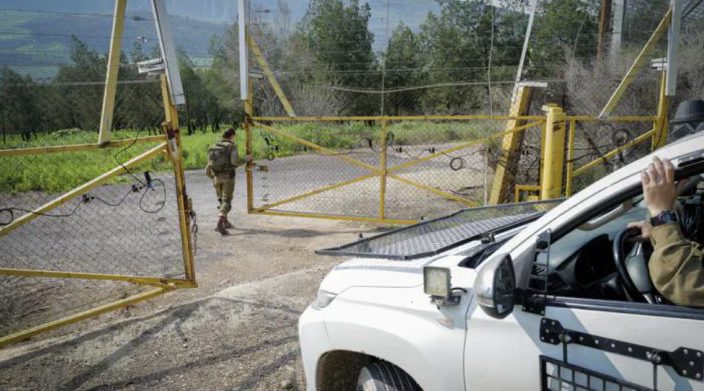Which approach will America take regarding Israel and the Jewish people? Will the extremist views and the polarization continue, or will one path emerge as the US’s bipartisan mainstream Israel policy? American Jews also have questions they must answer. Opinion..
July 4, 1976
Forty-nine years ago, on the eve of the US centennial, Palestinian Arab terrorists held 106 Jews and Israelis hostage in Entebbe and demanded the release of 53 terrorists. At that time, Israel and the West still had a policy of not negotiating with terrorists. They realized that such negotiations were dangerous in the long term, as they would encourage more terrorism and abductions.
A different alternative was proposed and executed in place of caving to demands: Israeli commandos led by Lieutenant Colonel Yonatan Netanyahu carried out a daring, miraculous and historic raid and freed the hostages. After flying 2,500 miles from Israel to Uganda, the commandos killed all the terrorists, destroyed 25% of the Ugandan Air Force, and freed 102 of the hostages within thirty minutes. The special forces freed the hostages just hours before July 4th celebrations commenced in the United States.
As expected, many African and Arab nations condemned Israel’s violation of Uganda’s sovereignty. The UN’s Secretary-General Kurt Waldheim also expressed concern over the violation of territorial sovereignty, and an attempt was made to pass a Security Council resolution condemning Israel, as is now quite commonplace in the United Nations.
US leaders, though, showed moral clarity. President Ford praised the raid, emphasizing that freedom is indivisible and that tyranny and terrorism abroad endanger freedom at home. He also viewed the raid as embodying American values and the July 4th holiday: “Our own Bicentennial Independence Day was enhanced by an event that day at Entebbe Airport in Uganda. That action of liberation freed our own hearts to fuller understanding of the universal meaning of independence — and the courageous action sometimes required to preserve it.”
Despite their own respective contemporary biases, the New York Times and Washington Post took a similar approach. Many of their editorials and op-eds highlighted the “poetic justice” of the rescue occurring on America’s Independence Day, framing it as a real-life act of liberation in the spirit of the Fourth of July.
June 1981
At the very time Israel was emancipating the Entebbe hostages, another, more ominous, threat was developing. Earlier that year, Saddam Hussein and Iraq signed a contract with Italy to purchase “hot cells” meant to upgrade the capability of the French nuclear reactor (purchased the previous year) to produce weapons-grade radioactive material.
This was, of course, a much greater threat to Israel. Saddam Hussein threatened more than just one hundred hostages; he actually endangered the entire country. Now the lives of millions were on the line.
Israel needed to take action, and proceeded to do so less than five years later. In June of 1981, Menachem Begin ordered Operation Opera, the bombing of Iraq’s nuclear reactor, and formulated what became known as the Begin Doctrine: “On no account shall we permit an enemy to develop weapons of mass destruction against the people of Israel. We shall defend the citizens of Israel in good time and with all the means at our disposal.”
However, on this occasion, the American administration was absolutely not on board. In fact, President Reagan responded by berating Prime Minister Begin and freezing the delivery of crucial air force fighter jets to Israel. The Americans recognized Israel’s right to free hostages, but did not respect the Jewish state’s necessity to defend itself against a future nuclear threat.
Fifty Years of Terrorist Organizations and Nuclear Threats
Arab terrorism and Saddam Hussein had changed the nature of the existential threats Israel faced from that moment on.
For the first twenty-five years of her existence, Israel’s neighbors largely attacked her with their conventional, national armies. After four failed attempts, culminating in the Yom Kippur War of 1973, these neighbors recognized that their armies could not defeat Israel in the way that the average country had classically waged war. A number of neighbors even eventually signed peace deals: first Egypt, then Jordan. Hopefully, Syria and Lebanon are not far from doing the same today.
In place of conventional warfare, terrorist organizations have emerged that have taken terrorist activities to a new level. Instead of attacking as individuals or small teams, they formed literal armies on Israel’s borders. Not armies that represent countries and respect the rules of war, but terrorist entities who call for intifadas that target civilians, take hostages, and use their (often complicit) civilians as human shields.
Israel also naively emboldened these terrorist entities by allowing them to occupy our borders through retreats from Lebanon and Gaza, and also by negotiating with them and releasing terrorists. There existed no fear factor among the death cult terrorist organizations as there did with Israel’s neighboring armies after their various failures to push the Jews into the sea. Deterrence among those constituting Israel’s newest enemies had yet to be achieved.
Of course, these terrorist armies have been inspired, funded, and supported by Iran. The Iranian revolution transpired less than three years after the Entebbe raid and ushered in a totally new phase of threats. Over the past five decades, the Iranians have nurtured these terrorist proxies in Lebanon, Gaza, Syria, Iraq, and Yemen. As many Israeli leaders have said, “the head of the octopus sits in Iran, its tentacles are spread throughout the Middle East”.
In addition, Iran followed Saddam Hussein’s lead in both calling for Israel’s destruction and developing the nuclear and ballistic abilities to facilitate this ultimate goal. Though proclamations were made and sanctions enacted against them, these Iranian efforts proceeded practically unhindered for decades both above and below ground.
Uganda’s support of terror, and Iraq’s and later Iran’s efforts to destroy Israel, also expanded the range of threats against the Jewish State. It is no longer just our immediate neighbors who terrorize us. Nations thousands of miles away have joined the fray.
October 7, 2023
All this came to a head on October 7, 2023.
Hamas’s brutal and sickening terrorist invasion, gleefully broadcasted live, showed Israel and the world exactly with whom and with what we must deal with. The subsequent attacks by Iran and its proxies, as well as Iran’s acceleration of its nuclear and ballistic programs, showcased the full scope of Iran’s plan to annihilate Israel and its citizens.
Though caught by surprise and shocked by Hamas’s onslaught and brutality, Israel understood the job at hand and has valiantly fought back over the past twenty months. Our efforts have dismantled or at least greatly weakened the Iranian proxies in Gaza, Lebanon, Iraq, Syria, and Yemen.
June, 2025
Last month, Israel finally struck the head of the octopus; Iran. Forty-four years (almost exactly to the day) after bombing Iraq’s reactor, Israel destroyed Iran’s. In addition, it destroyed most of its ballistic capabilities and utterly defeated and embarrassed a regime to whom pride is of the utmost importance.
Forty-nine years after Yoni Netanyahu and Israel acted 2,500 miles away, Yoni’s younger brother, Benjamin ordered Israeli pilots to strike the terror state bent on Israel’s destruction 1,500 miles away.
The United States on July 4, 2025
The Bright Side
Thankfully, forty-nine years after Entebbe and forty-four years after Operation Opera, the United States government has come full circle on its approach to the Begin Doctrine. In the decades since 1981, US governments came to appreciate and even support Begin’s decision to bomb Iraq’s nuclear reactor and declared their commitment to keep Iran from acquiring nuclear weapons. Hindsight, as they say, is 20/20, and last week, America even joined Israel’s attack on Iran with B-2 bombers and 40,000 pound bunker-buster bombs.
Echoing the situation forty-nine years ago, the United States approaches this July 4 after events in the Middle East that truly embody the values America stands for and that the national holiday of July 4th celebrates. July 4th celebrates the birth of a nation founded on liberty, self-determination, and resistance to tyranny. America’s help in defeating Iranian totalitarianism and Islamic fundamentalism and defending democratic Israel is a contemporary expression of these values.
American support for Israel also reflects its foundational values. America enshrines freedom of religion, and Israel is the only state in the Middle East that guarantees full religious freedom to Jews, Muslims, Christians, Druze, and others. Israel is a democratic state with regular elections, a free press, an independent judiciary, and a vibrant civil society; all values shared deeply with the US since its inception.
Israel is also a strategic partner of the United States in the fight against terror, radicalism, and authoritarian regimes; defending not only mutual interests but shared ideals of freedom and human rights. Cooperation is both above and below ground on a military, diplomatic and financial level.
American support for Israel is not just a geopolitical alliance; it reflects foundational American ideals of freedom, justice, human dignity, and the defense of democracy. Baruch Hashem, President Trump and his government understand this and have helped us defeat Iran and support our efforts against its proxies.
This is the bright side.
The Dark Side
The dark side is the intensification of the grotesquely antisemitic, anti-Israel sentiment since October 7th and in the wake of the attack on Iran. Strangely enough, this sentiment has united the extremes of American politics from both the extreme right and the extreme left.
Many far-right and far-left leaders, including Jewish senators and congressmen, have vocally objected to the government’s support for Israel’s fight against Iran and its proxies and have shown tolerance or even support for attacks against Jews in America. Many media outlets and newspapers, such as The New York Times, have long since lost the moral clarity they once may have possessed. This has reinforced anti-Israel sentiment within their constituencies. A recent poll showed that only 36% of Democrats support Israel in its war against Iran.
And, of course, last week, many of these same leaders supported an antisemitic and openly anti-Israel candidate, who advocates for BDS and “globalizing the intifada,” in his bid for the mayorship of New York. The fact that the dominant party in the city with the world’s largest number of Jews would nominate an antisemite as its candidate for mayor is truly concerning and indicative of the shift in political support both regarding Israeli and American Jews. What’s even more discouraging, is that many of these anti-Israel advocates actually see their efforts as synonymous with American values and not a few are Jews.
These morally impaired individuals view their defense of Palestinian Arabs as championing liberty against occupation. They argue that supporting Palestinian Arabs and opposing Israeli policies is consistent with America’s historic commitment to justice, civil rights, and opposition to oppression. Many of them actively compare “the Palestinian Arab struggle” as parallel to past American civil rights movements. Some even see Israel as a colonial or settler state and draw parallels between the American fight against British colonialism and Palestinian Arab resistance. They use this to argue that supporting decolonization is an extension of American revolutionary values.
The Jewish People
There are Jews and Jewish leaders who have been vocal anti-Israel voices and support the anti-semitic mayoral candidate. Amazingly, polls show that 20% of Jewish Democrats support him in his candidacy. These phenomena are a result of decades and centuries of Jewish leaders prioritizing universal values over Jewish principles and the Jewish people. Many Jews see Judaism as no different than contemporary political and social trends, and see themselves as no different than the other members of the global village.
The Crossroads
The strong US government support for Israel and the virulently antisemitic, anti-Israel voices are conveyed and publicly articulated simultaneously, and to a large extent, feed off one another. On the one hand, the current US government is more supportive of Israel than any of its predecessors. On the other hand, levels of demonization of Israel and Jews amongst much of the left and the far right have reached unprecedented levels. The number of antisemitic attacks in the United States in 2024 is up 340% percent compared to 2022.
America and its Jews are very much at a crossroads.
Which approach will America take regarding Israel and the Jewish people? Will the extremist views and the polarization continue, or will one path emerge as the US’s bipartisan mainstream Israel policy? American Jews also have questions they must answer. Facing the choice between two different ideological views, will they choose the one best for Israel and their fellow Jews? Will they prioritize the needs of their people and homeland, or have they become so assimilated and influenced by their surroundings that their once-priorities are now secondary or even irrelevant?
July 4, 2026
In one year’s time, the United States will celebrate its semiquincentennial. What kind of country will it be? What types of values will it see itself as standing for, in general and concerning Israel and the Middle East?
The people of the United States will decide upon their answers to these questions in the course of the next twelve months. American Jews, those living in America and those abroad, must influence this decision. We need to reach out to both fellow Jews and fellow Americans to rally their support for Israel and the Jewish people and inspire them to prioritize these as values.
This is important not just for Israel and the Jewish People, but for America as well. Hashem’s first words to the first Jew include the promise that those who support the Jewish People will be blessed while those who turn their back on them will fall (Bereishit 12:3). This was not just a personal assurance to Avraham — it is a timeless principle that has guided the fate of nations throughout history.
Those who have stood by the Jewish People, with sincerity and righteousness, have found themselves uplifted and blessed. Those who persecuted or abandoned them have often suffered decline and fall. From Pharaoh’s Egypt to Haman’s Persia, from the empires of Rome and Spain to modern regimes, history bears witness to this divine pattern.
Most recently, Rav Kook explained that Hashem orchestrated the British Empire’s post-World War I prominence and acquisition of lands in the Middle East and worldwide to help it establish and support a Jewish State. He warned that if the English did not do so, they would lose their prominence and colonies around the world.
Rav Kook’s words proved prophetic. The British fought the efforts to found a Jewish State and indeed lost their position of international prominence as well as their lands around the world (India, Pakistan, Sri Lanka, Myanmar, Ghana, Malaya, etc.).
The United States took England’s place as the leading superpower after World War II. Its future also hinges on its approach to Israel and the Jewish people. Let’s do our best to inspire the United States to take the right approach- for us and for the country itself.
May America’s choice to support Israel and the Jewish people merit it Hashem’s continued blessings and a safer planet for Israel, the United States, and the entire world.
Rav Reuven Taragin is the Dean of Overseas Students at Yeshivat Hakotel and the Educational Director of World Mizrachi and the RZA.
His new book, Essentials of Judaism, can be purchased at rabbireuventaragin.com





